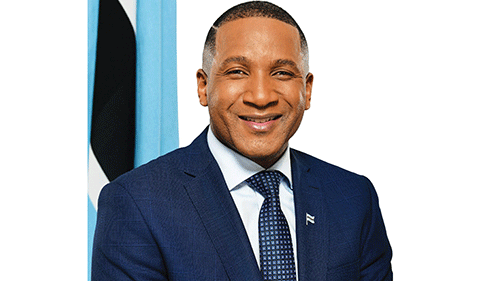Botswana will diversify its diamond-dependent economy by launching into the medicinal cannabis market and exploiting its abundant sunshine, president Duma Boko said Tuesday, in his first state of the nation address.
He swept to power in elections three weeks ago that ejected the party that had ruled for nearly six decades on concerns about a slump in the economy.
Diamonds make up about 80% of the Southern African country’s foreign earnings.
“The decline in diamond revenues by over 60% in recent years is a clear signal that we can no longer afford to depend on a single commodity,” Boko said.
His government aims to attract investors to high-potential sectors such as renewable energy, agriculture, tourism and technology.
“Botswana receives more than 3 200 hours of sunlight annually and averages 21 megajoules per square metre which is among the highest in the world,” he said.
“The potential of solar energy is abundant.”
The arid country will also begin cultivating medicinal cannabis and industrial hemp to plug into the growing international market.
“Our forecast in Botswana is to significantly increase our GDP with cannabis and hemp-related products,” said Boko.
“We will create jobs in this industry.”
A major gripe against the previous government under the Botswana Democratic Party (BDP), which led the country to independence from Britain in 1966, was a 27% unemployment rate, rising to 38 percent for young people. Boko said other plans for job-creation lay in boosting manufacturing and construction, as well as encouraging youth entrepreneurship and innovation.
Botswana has engaged US billionaire Elon Musk’s satellite internet provider Starlink to extend affordable internet connectivity to the entire country, he said.
Starlink has plans to invest in infrastructure that will help transform Botswana into a digital hub for the entire region, he added.
Home to around 2.7 million people, Botswana won praise for a smooth change of government when the BDP was quick to concede defeat after winning just four seats in parliament on 30 October, compared to 36 for Boko’s Umbrella for Democratic Change.
– Nampa/ AFP


